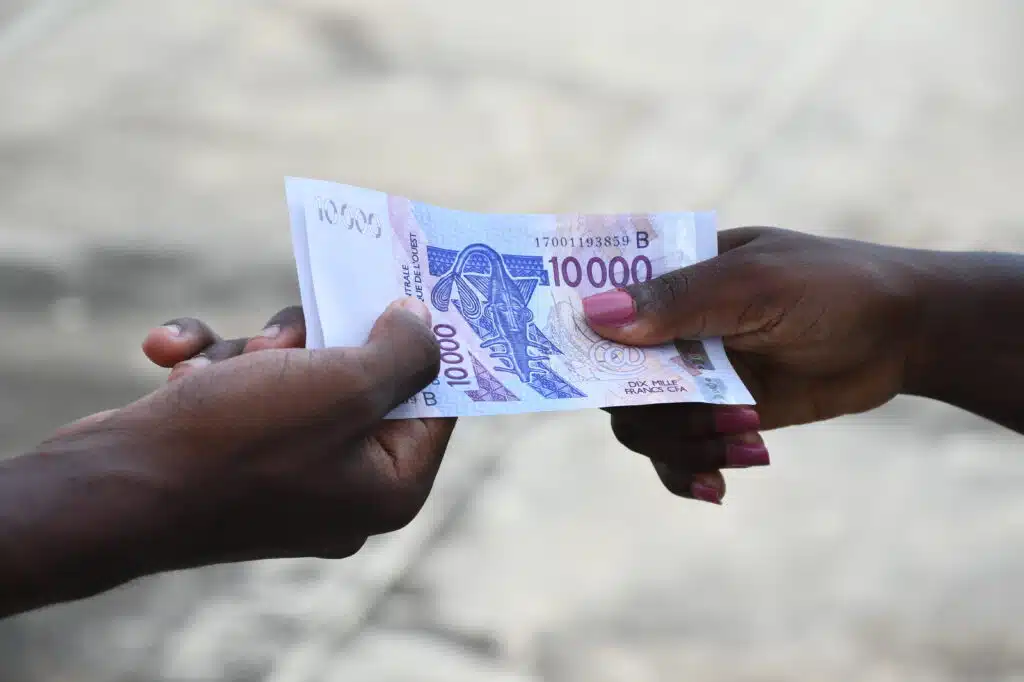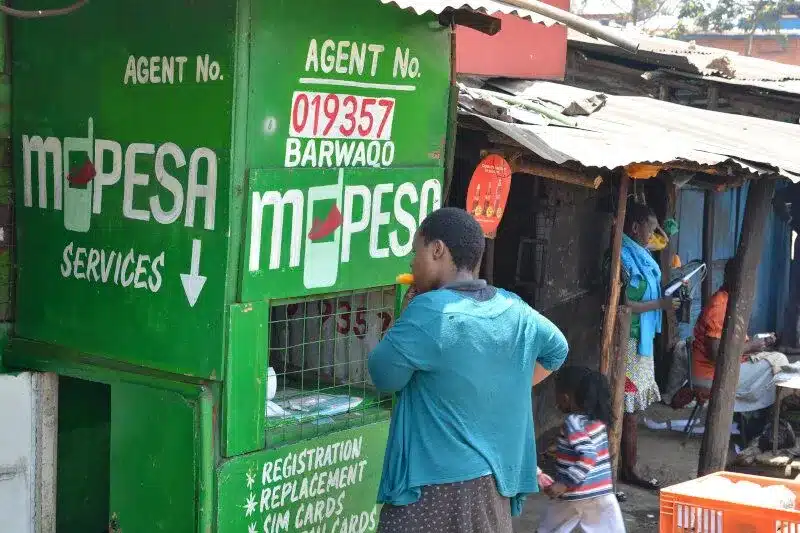Zdravstvuyte,
Victoria from Techpoint here,
Here’s what I’ve got for you today,
- Kenya fines TV stations for masking gambling as religion
- Why founders are choosing loans over equity
- Bet on the pipes powering Africa’s payments, not the apps
Kenya fines TV stations for masking gambling as religion

Kenya’s broadcasting regulator is finally cracking down hard on TV stations using religion as a cover to promote gambling. This follows a damning NTV investigation, #SacredSwindle, that exposed how broadcasters were disguising betting promos as faith-based shows to target unsuspecting viewers.
Turns out the Communications Authority (CA) had been on the case even before the exposé aired. Back in March, it flagged 33 broadcasters for breaking the rules and issued violation notices. But things escalated in April when the CA and the Betting Control and Licensing Board both issued blanket bans on gambling ads.
Despite those clear warnings, some stations kept airing the promos, and regulators weren’t having it. In May, the CA did a follow-up review and found that several broadcasters were still airing shady betting content, clearly ignoring all directives.
Now the hammer has dropped. Eight of the worst offenders are being fined KSh 500,000 ($3,869.97) each under Kenya’s communications law. They’ve got 12 hours to shut down the rogue content or risk losing their broadcast licenses altogether.
The real scandal? These stations were using religious programming to lure in viewers with gambling disguised as divine intervention. It’s a shady move that preys on faith and trust, and the regulators say it’s not just unethical. It’s illegal.
The CA says it’s committed to keeping Kenya’s airwaves clean and safe, and gave credit to journalists for shining a light on the abuse. With this enforcement, the message is clear: no more hiding behind the pulpit to push gambling.

Victoria Fakiya – Senior Writer
Techpoint Digest
Stop struggling to find your tech career path
Discover in-demand tech skills and build a standout portfolio in this FREE 5-day email course
Why founders are choosing loans over equity

Ever notice how more African startups are swapping equity rounds for debt these days? It’s hard to ignore: debt made up just 6% of startup funding in 2021, jumped to 25% in 2023, and still lingered at 18% in 2024. For cash-strapped founders, loans can be a lifeline when venture capital dries up or valuations get ugly.
But debt isn’t magic money, it’s only right for companies that have reached a certain level of maturity. According to Patrick Igwe of FSDH Merchant Bank, you don’t want a fledgling startup taking on monthly repayments before you know if you can pay them. Early-stage ventures are better off raising equity, but once you’ve proven product-market fit and built predictable revenue, a loan can help you scale into new markets without handing over more ownership.
So what does “suitable for debt” actually look like? First, you need predictable cash flows — enough to cover principal and interest every month. And since Nigerian interest rates are notoriously high, Patrick says it’s wise to shop around for the most affordable option. He also points out that blending concessional (cheap) funds from development finance institutions with market-rate debt shows lenders that you’ve got both growth potential and financial savvy.
There are plenty of debt products on offer: invoice financing (where you cash in unpaid invoices), contract financing (where a signed deal guarantees repayment), and classic term loans (fixed principal and interest). Each has its requirements, like audited financials for the past three years, up-to-date management accounts, and clear bank statements. Without those, forget about getting a lender’s attention.
Who’s handing out these loans? You can tap into development finance institutions for concessionary rates or go the traditional banking route, which is more expensive. Patrick recommends targeting lenders that can mix both fund types, so you demonstrate both eligibility for subsidised rates and the ability to handle market-rate borrowing.
Debt financing can be a powerful tool, but it’s easy to trip up if you don’t know what you’re doing. To learn about common mistakes founders make when seeking debt funding, read Chimgozirim’s story.
Bet on the pipes powering Africa’s payments, not the apps

Africa’s cross-border payments market is heating up, but a new report says investors might be betting on the wrong horses. While consumer-facing fintech apps have hogged the spotlight, the real action — and value — may lie behind the scenes in the infrastructure powering it all.
Oui Capital, an early-stage VC firm, just dropped a report urging investors to look past flashy mobile money apps and neobanks, and start backing the payment rails, APIs, and compliance systems that make those apps work. With the market expected to triple from $329 billion in 2025 to $1 trillion by 2035, they argue this is the real goldmine.
The report points to long-standing inefficiencies in cross-border payments: high costs, dollar-dominated settlements, fragmented mobile money networks, and clunky KYC rules. But infrastructure players like Flutterwave, Onafriq, and Thunes are tackling these issues with tools that bridge banks and mobile wallets, making transfers cheaper and faster.
Initiatives like PAPSS, which lets users send and settle payments in local currencies, are also helping push things forward. If these bottlenecks are solved, the report says the continent could unlock over $10 billion in yearly savings and value.
So why aren’t more investors looking here? Many prefer the consumer side because it scales faster and offers quick user growth. But margins are getting squeezed. Most consumer fintechs charge razor-thin fees, as low as 0.5%, and are finding it tough to stay profitable without major volumes.
Meanwhile, infrastructure firms offer stickier products, recurring revenue from API calls and FX services, and less competition. As global funding slows and VCs start demanding profits over hype, Africa’s fintech infrastructure could become the smart, long-term play.
In case you missed it
- Kenya to sell part of 35% stake in Safaricom to raise part of $1.16bn
What I’m watching
- Japan’s population crisis reaches tipping point | FT Film
- Syphilis Is Changing Like We’ve Never Seen… In Seattle
Opportunities
- Want to exhibit or attend the Lagos Startup Expo in June? Visit this website here.
- OmniRetail is hiring a Sales Representative for its fashion retail. Apply here.
- Jiji ng is hiring a Merchant Acquisition Association. Apply here.
- M-KOPA is hiring a field auditor. Apply here.
- MTN is recruiting for several roles. Apply here.
- IHS Towers is looking for professionals to fill several roles. Apply here.
- Moniepoint is hiring for several positions. Apply here.
- Kuda is recruiting for several roles. Apply here.
- Stanbic IBTC is looking for a Business Segment: Insurance & Asset Management. Apply here.
- Building a startup can feel isolating, but with Equity Merchants CommunityConnect, you can network with fellow founders, experts, and investors, gaining valuable insights and exclusive resources to help you grow your business. Click here to join.
- Help us make Techpoint better for you! Your feedback shapes what comes next (your responses may potentially save my job. A bit dramatic, but still). It will only take 30 seconds to tell us what works and what doesn’t. Fill it here.
- To pitch your startup or product to a live audience, check out this link.
- Have any fresh products you’d like us to start selling? Check out this link here.
- Follow Techpoint Africa’s WhatsApp channel to stay on top of the latest trends and news in the African tech space here.
Have a wonderful Wednesday!











